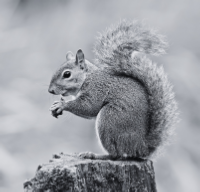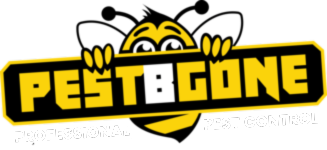Pestbgone Limited
The Mews, Hounds Road,
Chipping Sodbury, Bristol GL8 8UL
Buckinghamshire -
Office: 01628 473062
Onsite: 07728 314363
South Gloucestershire -
Office: 07585 124939
Onsite: 07585 124939
Our Services
Registered in England and Wales.
Company No: 13370531
VAT No: 364671477
Registered Address: The Mews, Hounds Road, Chipping Sodbury, Bristol, South Gloucestershire GL8 8UL
All Rights Reserved © 2025 Pestbgone Ltd






Our Services
Grey Squirrels
As an animal the Grey Squirrel looks very attractive with its bushy tail and grey chestnut coat. In park and garden areas people gain much pleasure from seeing this fairly tame animal close up. However grey squirrels are not native to these shores and The North American grey squirrel to give its full name was deliberately introduced to Britain and other parts of Europe during the 19th Century merely as a curiosity to satisfy the Victorian trend for novelty. Unfortunately, no one had the foresight at the time to see how much of an impact this alien species would have on our own native species of wildlife.
Since then, the adaptable and hardy grey squirrel has thrived in Britain's parks, gardens and woodlands. It has now become widespread throughout the UK and being larger and more aggressive than its smaller and now much rarer cousin the red squirrel, it has placed red squirrel numbers under serious threat. Under British law grey squirrels are deemed to be a pest species and can be controlled by an authorized person using approved measurers.
Damage
The outdoor damage is fairly innocuous to the general public; they damage trees by stripping off the bark, they take fruit from the garden, raid wild birds’ nests for eggs and raid bird tables for nuts. Most of the time we tolerate this damage, for the pleasure of seeing squirrels around the garden. However, when they get into the loft of a house they do a great deal of damage indeed. Squirrels are incredible acrobats and are able to climb up the vertical outside wall of a house by holding on to the pebbledash or to the tiny gaps between bricks and mortar. Once they reach the eaves, they can find their way in through holes left for overflow pipes or loose slates. Once inside they will gnaw wood, pipes, electrical cables and shred insulation. They will also gnaw at any stored valuables in the loft space. In severe cases squirrels will even gnaw through plasterboard and enter upper rooms. Squirrels are not normally dangerous, but a wild one trapped in a loft or cornered will bite very hard indeed.
Breeding
In the wild grey squirrels can survive in parkland, copses, and trees, and build their nests (called dreys,) from twigs, leaves and moss. However, being increasingly urban in their habits, they will quite happily nest in roof spaces. There are two breeding seasons each year (one in Feb/March and the other in June/July), with 3-
Legal Status
Because squirrels are regarded as pests, it is perfectly legal for householders to employ professionals to remove them. There are very strict laws about how this can be done -
WikiPest
Everything you need to know about
Grey Squirrels

We’re here to help -
Buckinghamshire & South East
South Gloucestershire & South West
